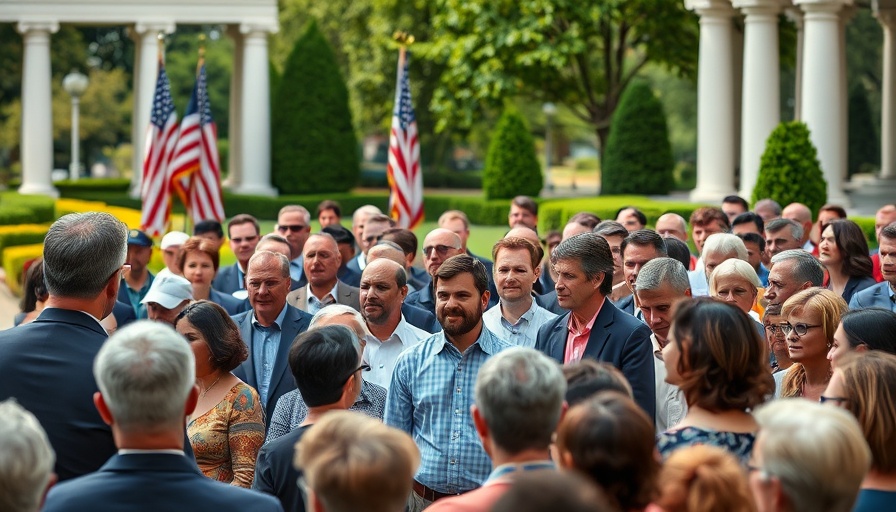
The Implications of Tariff Policies in Today's Economy
The recent announcement from President Trump regarding new tariff policies has sent ripples through the market, provoking mixed responses from economists and the public alike. What benefits and risks do these tariffs carry in the short and long term? This complexity makes a live conversation with renowned economist Tyler Cowen particularly valuable.
Understanding Tariffs: Navigating the Economic Terrain
At the heart of this discussion is a crucial question: Are these tariffs mere negotiation tactics, or do they signal the start of a serious trade conflict? Tariffs can be a tool for governments to protect local industries by making foreign goods more expensive, but they can also lead to inflation and higher costs for consumers. For top wage earners in Philadelphia, understanding how these shifts could impact their purchasing power—like the cost of groceries and cars—is essential.
Immediate Effects on Consumer Prices: What to Expect
The potential for rising prices is one of the most immediate concerns tied to heightened tariffs. But how much will these price increases affect everyday life? Recent analyses suggest that tariffs could raise the cost of everyday items, hitting households directly in their wallets. As someone who resides in a bustling city with an economy tightly woven with trade, the implications could be profound.
Experts Weigh In: Diverse Perspectives on Tariffs
Tyler Cowen isn’t the only economist weighing in. There are contrasting views on whether these tariffs will ultimately benefit the economy. Some argue that they may bring jobs back to the U.S., while others warn of retaliatory measures that could lead to a trade war. This contrasts greatly with the notion of globalization, where interconnectedness is often considered a boon.
The Global vs. Local Dichotomy: Perspectives for Top Earners
In Philadelphia, where local businesses thrive alongside multinational corporations, the impact of global tariff implications can feel particularly acute. This intricate web of trade means that while some industries may flourish, others may struggle to cope. For high earners, this situation poses not only a risk to economic stability but also to their investment strategies and local economic support.
Actionable Insights: What Should You Do?
Being informed and prepared can mitigate the risks associated with these tariffs. Following the live discussion with Cowen can equip you with the necessary insights to make savvy financial decisions. Consider reevaluating your investment portfolio, assessing how industries within your local economy may be affected, and remaining abreast of updates in government policy.
Join the Conversation: Engaging with Economists
This is not just about passive consumption of news; it's an invitation to engage. By tuning into the live podcast featuring Cowen and Weiss, participants not only gain insights but also have the opportunity to ask questions directly. The importance of this interactive discussion cannot be overstated, especially for those who are economically influential.
In conclusion, as tariff policies evolve and fluctuate, staying informed will be paramount. Join Bari Weiss and Tyler Cowen today to unpack these complexities and to better understand what they mean for your finances, lifestyle, and the future of trade.
 Add Row
Add Row  Add
Add 




Write A Comment